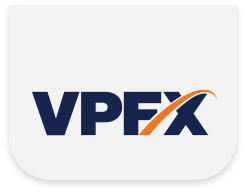The financial sector is always changing, and new technologies are revolutionizing how individuals trade and invest. Offering trading services to customers is an important component of many financial institutions’ business strategies. Yet, creating and maintaining a trading platform can be expensive and time-consuming, requiring a sizable investment in infrastructure, employees, and technology. White-label trading platforms provide the best forex white label solutions offered by third-party suppliers to help financial institutions start their trading services rapidly and affordably. Since these platforms may be completely customized, brokers can give them their name, logo, and corporate identity. A variety of features, including real-time market data, charting tools, order administration, risk management, and compliance, are frequently included in the white-label solution.
Among the many clients served by trading white label systems are banks, hedge funds, investment companies, and internet brokers. Smaller and mid-sized brokers who lack the funding to create their trading platforms find them particularly appealing. These businesses may provide sophisticated trading services to their clients without having to make a big investment in technology thanks to white-label solutions. Brokers may easily establish their trading services under their own identity with the help of the white-label solution, which gives them the freedom to concentrate on their key skills in sales, marketing, and customer service. Thus, below are some ways in which white-label trading platforms can help eliminate client problems.

- Technical assistance: Technical assistance is provided by white-label trading platform providers to assist brokers in resolving any technical difficulties that may develop, such as connectivity or latency issues. You may usually reach this help by phone, email, or online chat, and it is often accessible around the clock. To assist brokers with more complicated difficulties, some service providers also provide onsite support or professional account managers.
- Customization: White-label trading systems can be entirely customized, allowing brokers to give the platform their name, corporate identity, and logo. This aids in increasing brand recognition and setting brokers apart in a congested market. The user interface, language support, and trading functionality are examples of customization choices.
- Monitoring and reporting of compliance: White-label trading platform providers provide solutions to assist brokers in adhering to legal requirements such as anti-money laundering (AML) and know-your-customer (KYC) laws. Brokers can use these technologies to monitor trades, spot odd behaviour, and provide compliance reports.
- Integration: To assist brokers in integrating the platform with their current systems and workflows, white-label trading platform providers’ offer specialized integration services. To do this, the platform may be integrated with the broker’s back-office systems, such as its accounting and reporting systems, as well as with third-party software, such as trading algorithms and risk management tools.
- Market data accessibility: White-label trading platforms offer real-time market data and charting capabilities, enabling brokers to make knowledgeable trading decisions and give their clients the most recent market data. News feeds, and economic calendars are only two examples of the research and analytical capabilities that certain platforms provide.
- Scalability: White-label trading platforms are made to be scalable, which means they can easily accommodate an increase in the number of customers and trades. This is especially crucial for brokers who might expand quickly or who need to make room for a spike in trading activity. Scalability guarantees that the platform can give users a dependable and quick trading experience.
- Reduced costs: Brokers can save money by adopting a white-label trading platform rather than making the large investment necessary to construct and maintain their platform. This can aid in cost-cutting and profit improvement, especially for smaller or mid-sized brokers who could be working with constrained resources.
- Trading across numerous asset classes: White-label trading platforms frequently offer to trade across various asset classes, including stocks, bonds, currency, and futures. This makes it possible for brokers to provide a greater variety of trading services to their customers, which can help them draw in and keep customers with a range of trading requirements.
- Mobile commerce: Trading on the go with a smartphone or tablet is possible thanks to the mobile trading apps that are available on many white-label trading platforms. This can boost customer engagement, enhance their user experience, and give brokers a competitive edge in a mobile-first environment.
- Back-office assistance: White-label trading platform providers provide back-office assistance services, such as transaction reconciliation and settlement, which can assist brokers in streamlining their business processes and lowering operational risk. Automated trade matching, margin control, and settlement reporting are a few examples of this service.
- Security: White-label trading systems provide strong security safeguards to safeguard customer information and trading operations. These can include systems for intrusion detection and prevention, multi-factor authentication, and data encryption both in transit and at rest. To make sure that they are adhering to industry standards, the platform providers also perform routine security assessments.
- User-friendly interface: White-label trading platforms are made with an intuitive, simple-to-use user interface. This can make it easier for clients to examine their portfolios, track their trades, and make informed trading decisions.
- Tools for risk management: White-label trading systems provide risk management capabilities that can assist brokers in controlling customer risk and averting losses. This may involve using instruments like stop-loss orders, margin calls, and risk warnings.
- Consumer service: Customer support is a feature that white-label trading platform providers offer to assist brokers and their clients in resolving any problems or issues that may come up. Help with trading, troubleshooting technology, and account administration are all examples of this support. Several service providers additionally provide multilingual help to serve customers from various geographical areas.
- Analytics and reporting: White-label trading platforms include reporting and analytics capabilities that allow brokers and their clients to keep tabs on their trading activity and spot patterns. Tools like profit and loss statements, trade histories, and performance measures can be a part of this.
In conclusion, the white labelled platform provides a variety of alternatives that can assist brokers in eradicating consumer issues and enhancing their trading services. Brokers can offer their customers a dependable, safe, and user-friendly trading platform while streamlining their business processes, lowering risk, and optimizing development potential by utilizing these solutions. White-label trading platforms are now a necessary tool for brokers trying to stand out in a crowded industry, and as demand for online trading services rises, more and more brokers are likely to use them.





